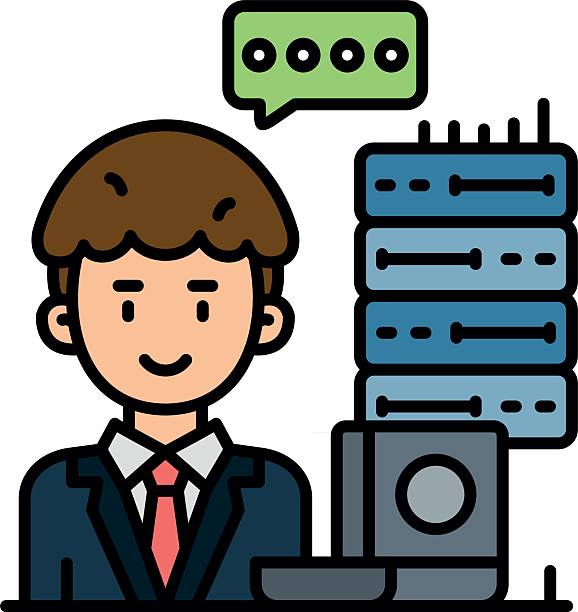Why Dedicated Servers Feel Like Owning a Private Island
I’ve always felt that hosting a dedicated server is kind of like owning your own tiny digital island. No noisy neighbors, no random traffic eating up your space, no mysterious slowdown because someone on the same server decided to upload a thousand cat videos at once. It’s just you, your data, and honestly… a lot more responsibility than most people expect.
When I first dipped my toes into dedicated hosting, I thought it would be as simple as renting a room online. Turns out, it’s more like renting an entire house where you have to maintain the locks, the water pipes, and sometimes fix the light switch even though you swear you didn’t touch anything. But still, freedom? Totally worth it.
The Real Deal About Performance (And Why People Don’t Talk About It)
Most blogs keep saying dedicated servers are “high performance,” which is true, but also kind of vague. The real reason they feel so fast is because you’re not sharing CPU cycles with random strangers across the world who might be using the server for stuff you don’t even want to imagine.
Think of it like a gym treadmill. In shared hosting, you’re basically waiting for that one guy to finish his marathon so you can hop on. But with dedicated hosting, the treadmill is yours 24/7 and no one sweats on it but you. You don’t even have to wipe it down if you don’t want to.
And weirdly, online sentiment these days is pretty strong about people wanting more control. Every second Reddit post on tech threads is basically: “I’m tired of shared hosting being so slow; should I switch to a dedicated one?” The answer, according to people who’ve done it, is usually “yes, unless you’re broke.”
Security That Lets You Sleep (Mostly) Better
Security is probably the most underrated part of hosting a dedicated server. With shared hosting, one hacked site can sometimes affect every other site riding on the same server. It’s like living in an apartment where one neighbor leaves the main gate open but you get robbed for it.
With dedicated hosting, you control the locks. You decide the firewall rules, the malware scanners, and the updates. Of course, the flip side is that if something breaks, you might find yourself Googling “how to fix an SSH error at 3:27 AM,” which I have absolutely not done more than twice.
Still, there’s something comforting about knowing that no random website is going to drag you into their mess. You’re in charge of your digital fortress—even if sometimes it feels like defending a castle with a slightly bent sword.
When Businesses Grow Up, So Does Their Hosting
I’ve seen so many small businesses procrastinate moving to a dedicated setup. They wait until their website crashes during a festival sale and then panic-upgrade everything overnight. Honestly, a dedicated server is one of those things you only truly appreciate after you’ve suffered through bad hosting.
When traffic starts growing, your hosting should grow too. A dedicated server isn’t just about power; it’s about stability. Sites load faster, apps run smoother, and there’s less drama overall. Even Google kind of rewards faster sites, though they won’t admit it straight up.
There’s also this silent but very real flex factor. Telling someone “yeah, we’re running on our own dedicated server now” just sounds grown-up and professional. Kind of like switching from a scooter to a car—not necessary for everyone, but man, the comfort.
Some Lesser-Known Stuff People Rarely Mention
A fun fact most people don’t know: dedicated servers often come with better bandwidth quality. It’s not always written in bold on hosting pages, but the network routing and priority can be way better than budget shared hosting providers.
Also, you can customize the hardware. Want more RAM? Add it. Want to switch from HDD to SSD? Go for it. Want to install some weird niche software your developer friend recommended at 2 AM? Sure, nobody’s stopping you.
Freedom is addictive. After using a dedicated server, going back to shared hosting feels like going back to dial-up internet. And yeah, that comparison makes me feel old.
Is Hosting a Dedicated Server Hard? Depends Who You Ask
If you’re used to plug-and-play hosting, the shift can feel like someone threw you into the cockpit of a plane. The buttons are there, everything is technically doable, but also you’re not entirely sure what happens if you press the wrong one.
But most providers these days offer managed options, and they honestly save lives. If you’re not into backend stuff or you panic when you see the word “root access,” managed hosting is like having a mechanic who checks your car every week without judging your driving skills.
For more tech-savvy folks, unmanaged servers are like playgrounds. Freedom everywhere. Also potential disasters everywhere. Depends how brave or caffeinated you are.
My Own Tiny Story of “Learning the Hard Way”
One of the first dedicated servers I ever worked with had this weird issue where the disk kept filling up overnight. I thought it was malware, or maybe someone hacked me, or maybe the server was haunted—I considered everything. Turns out, I accidentally set a log file to print every second instead of every hour.
I wasted a whole night debugging something I broke myself without even realizing it. But that’s honestly the charm of dedicated setups. You learn, you mess up, you fix it, and then you act like you knew what you were doing the whole time.
Why Hosting a Dedicated Server Still Feels Like an Upgrade in 2025
Even with cloud hype everywhere, dedicated hosting still has its fanbase. And it’s growing again. People want privacy, control, and raw power—no algorithm deciding where their data sits today.
For companies or creators who want serious stability, moving to a dedicated server isn’t just logical; it’s kind of the next natural step. You get reliability, performance, customization, and this satisfying sense of ownership.




